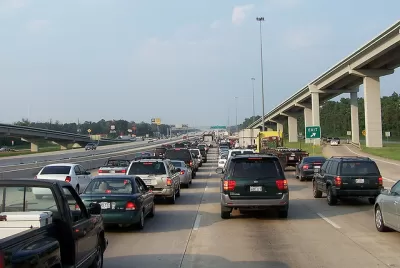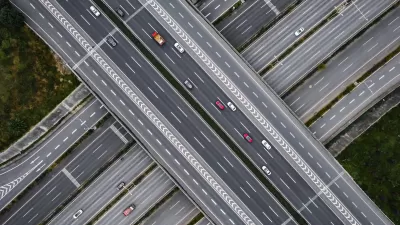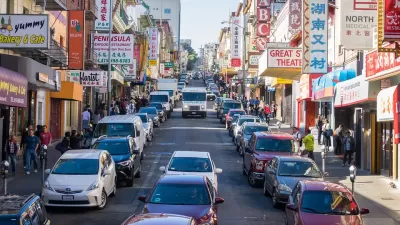The status quo is unhealthy for everybody.

Austin Frakt, director of the Partnered Evidence-Based Policy Resource Center at the V.A. Boston Healthcare System; associate professor with Boston University’s School of Public Health; and adjunct associate professor with the Harvard T.H. Chan School of Public Health, takes to the pages of The New York Times to provide a literature review, of sorts, of all the evidence for the negative health impacts of long, congested commutes.
There is a lot to unpack here, but research suggest that congestion and long-commute times has negative outcomes on stress, respiratory health, aggressive behavior, and domestic violence.
While there is plenty of bad news to deliver about the consequences of the daily realities of most people in the United States, Frakt also provides a few examples of light at the end of the tunnel, so to speak. For instance, charging drivers for access to express lanes has shown positive results on the stress levels of commuters:
Los Angeles has put in a system that charges solo drivers more to use certain lanes of the I-10 and I-110 highways during periods of heavy traffic. This encourages drivers to move their commutes to less congested times or routes. A study of congestion pricing on Seattle’s SR-520 Bridge found that drivers using the route and its alternatives were less stressed and more satisfied with their commutes after the pricing change.
Frakt also lists increasing options for remote work, bike and transit commutes (in some cities), and the potential of autonomous transportation for further mitigating some of the negative health outcomes connected to driving and congestion.
FULL STORY: Stuck and Stressed: The Health Costs of Traffic

Maui's Vacation Rental Debate Turns Ugly
Verbal attacks, misinformation campaigns and fistfights plague a high-stakes debate to convert thousands of vacation rentals into long-term housing.

Planetizen Federal Action Tracker
A weekly monitor of how Trump’s orders and actions are impacting planners and planning in America.

In Urban Planning, AI Prompting Could be the New Design Thinking
Creativity has long been key to great urban design. What if we see AI as our new creative partner?

Portland Raises Parking Fees to Pay for Street Maintenance
The city is struggling to bridge a massive budget gap at the Bureau of Transportation, which largely depleted its reserves during the Civd-19 pandemic.

Spokane Mayor Introduces Housing Reforms Package
Mayor Lisa Brown’s proposals include deferring or waiving some development fees to encourage more affordable housing development.

Houston Mayor Kills Another Bike Lane
The mayor rejected a proposed bike lane in the Montrose district in keeping with his pledge to maintain car lanes.
Urban Design for Planners 1: Software Tools
This six-course series explores essential urban design concepts using open source software and equips planners with the tools they need to participate fully in the urban design process.
Planning for Universal Design
Learn the tools for implementing Universal Design in planning regulations.
Gallatin County Department of Planning & Community Development
Heyer Gruel & Associates PA
JM Goldson LLC
City of Camden Redevelopment Agency
City of Astoria
Transportation Research & Education Center (TREC) at Portland State University
Jefferson Parish Government
Camden Redevelopment Agency
City of Claremont





























